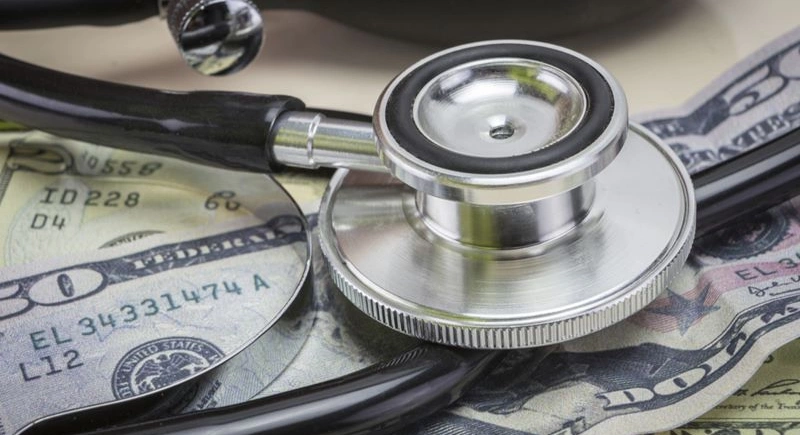Ways To Save On Medical Bills

For most Americans, healthcare is a top personal and financial priority. Unfortunately, provider billing mistakes combined with the skyrocketing cost of healthcare services, health insurance premiums, and prescription drugs can create real financial concerns. The good news is that there are ways to keep your medical bills in check.
Here are some tips:
Choosing Providers and Pricing. According to the U.S. Census Bureau, the majority of Americans (nearly 86%) have health insurance coverage to pay for the majority of their healthcare services. However, even if you have health insurance, you can still comparison shop for healthcare just like any other purchase.
Use In-Network Care Providers. If you have a PPO (preferred provider option) health insurance plan, your insurer will pay for the majority of the cost (minus your co-pay) when you use a doctor or hospital that is part of the insurance company's preferred network of providers. If, however, you use a doctor or hospital outside the provider network, you will have to pay a larger portion of the bill. PPOs typically pay only up to 70-80% of expenses incurred outside the network.
Ask your doctor for an estimate of the costs before planning costly procedures such as surgery and MRIs. You might be surprised to know that you can ask your doctor to give you an estimated cost for a procedure or service before scheduling an appointment. Most insurance companies also have cost estimators on their websites
Ask about options. Ask your physician if all the recommended tests or procedures are medically necessary, especially if you have to meet a high out-of-pocket deductible or co-pay.
Seek out a Local Advocate. Professional healthcare advocates can provide you with information about local care options, help you obtain care and resolve billing issues with your insurance company and/or healthcare providers.
Use generic drugs. Since the FDA eased restrictions on pharmaceutical companies being able to advertise directly to consumers (called DTC advertising) in 1997, Americans have been bombarded with multi-million-dollar ad campaigns promoting name-brand drugs and treatments. According to the Consumer Reports National Research Center, generic drugs are as effective and safe as name-brand drugs and often cost significantly less.
Get Drugs by Mail or From Big-Box Retailers. You can sometimes find prescription drugs at reduced rates at warehouse club stores like Sam's Club even if you're not a member. Several large retail chain stores also offer significant discounts (without health insurance) such as $4 for a 30-day supply or $10 for a 90-day supply on 300-400 popular generic drugs. You can also ask your doctor to recommend a mail-order pharmacy where you can get a larger prescription package (e.g., a three-month supply instead of a typical one-month supply) for less.
Watch For Billing Errors. When was the last time you actually reviewed your medical bills? An incredible 9 in 10 hospital bills contain overcharges, according to a New York Times article based on a U.S. Government Accountability Office report. Reduce the likelihood of paying too much for your medical care by doing the following:
Ask for Itemized Bills. The explanation of benefits (EOB) statement you get in the mail does not contain a detailed breakdown of all costs charged to you for services and/or inpatient stay. Specifically, ask for an itemized bill so you know exactly what you are being charged for.
Review Bills for Errors. Make sure that you actually received all of the services, medications and other items that you are being charged for. If you notice a discrepancy or error, request copies of your medical chart and/or pharmacy ledger so that you can compare the doctor's orders for services with what you were billed for.
Review Your Insurance Coverage. Your health insurance policy manual outlines which charges are «covered» versus «not covered». All covered expenses should be paid for by the health insurance company. The EOB form you receive from your insurance company will note if a service was covered or not. make sure it matches your doctor's medical bill
Use a Professional Bill Reviewer. If you just can't make heads or tails of the bills' codes and costs, contact a professional bill reviewer who knows hospital diagnoses and procedure codes and can determine if you have been incorrectly billed or overcharged for the care you received. This is particularly important if you have complex and ongoing claims. They will also negotiate with your doctor's office to get a discount on services, or a smaller settlement.
Create a Payment Plan if you can't pay your bill in full and on time, ask the billing-office staff if they will work with you to create a plan enabling you to make smaller, more manageable payments over an extended period of time.
Talk to Your Insurance Company if you're having trouble paying your medical bills, there may be a different health insurance plan that is better suited to your needs. Co-pays, deductibles, annual maximums, and other fees can vary significantly between plans.
Final Thoughts By taking the time to familiarize yourself with your insurance benefits, seek discounted services and drugs, review your bills and work closely with your healthcare providers' billing or finance staff, or hiring a professional bill review Advocate, you can manage and even significantly decrease your medical bills.

